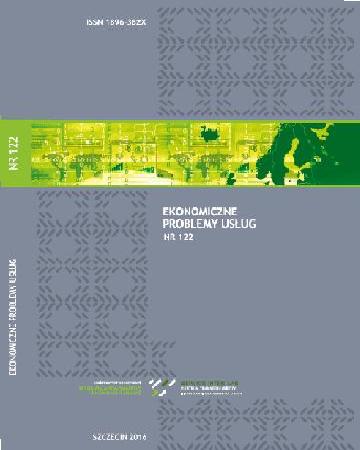
ISSN: 1896-382X
eISSN: 2353-2866
OAI



Issue archive /
nr 116 2015
Zjawisko luki podatkowej w kształtowaniu warunków funkcjonowania przedsiębiorstw
(The influence of tax compliance gap on the economic activity)
| Authors: |
Adam
Adamczyk
Uniwersytet Szczeciński |
| Keywords: | taxation gap enterprises |
| Data publikacji całości: | 2015 |
| Page range: | 11 (601-611) |
Abstract
The problem of tax compliance gap is harmful not only for the state but also for enterprises. Existence of tax compliance gap distorts the competition between firms that pay taxes legally and those that operate in shadow economy. Tax compliance gap can also cause the rise in tax burdens of honest taxpayers because the state may flip unpaid taxes on them. Accordingly as well state as enterprises should be interested in bounding the tax compliance gap. The aim of paper is to answer the question if one can effectively decrease this problem.
Download file
Article file
Bibliography
| 1. | Allingham M., Sandmo A., Income tax evasion: a theoretical analysis, „Journal of Public Economics” 1972, t. 1, nr 3–4. |
| 2. | Alm J., Measuring, Explaining, and Controlling Tax Evasion: Lessons from Theory, Experi-ments, and Field Studies, Tulane Economics Working Paper Series, Working Paper 1213, 2013. |
| 3. | Blackwell C., A Meta-Analysis of Tax Compliance Experiments, International Center for Public Policy Working Paper Series at Andrew Young School of Policy Studies 2007, nr 7. |
| 4. | Bobek D.D., Roberts R.W., Sweeney J.T., The Social Norms of Tax Compliance: Evidence from Australia, Singapore, and the United States, „Journal of Business Ethics” 2007, |
| 5. | t. 74, nr 1. |
| 6. | Dhami, S., al-Nowaihi A., Why do people pay taxes? Prospect theory versus expected utility theory, „Journal of Economic Behavior and Organization” 2007, t. 64 (1). |
| 7. | Feld L.P., Frey B.S., Trust breeds trust: How taxpayers are treated, „Economics of Govern-ance” 2002, t. 3, nr 2. |
| 8. | Hashimzade N., Myles G.D., Tran-Nam B., Application of behavioral economics to tax eva-sion, „Journal of Economic Surveys” 2012, DOI: 10.1111 / j.1467-6419.2012.00733.x. |
| 9. | Łapiński K., Peterlik M, Wyżnikiewicz B, Szara strefa w polskiej gospodarce, Instytut Badań nad Gospodarką Rynkową, Warszawa 2014. |
| 10. | Niesiobędzka M., Zachowania podatników w świetle teorii perspektywy, w: Psychologia ekonomiczna, red. T. Tyszka, Gdańskie Wyd. Psychologiczne, Gdańsk 2004. |
| 11. | Raport: Luka podatkowa w VAT – jak to zwalczać?, PWC 2014. |
| 12. | Raport: Straty Skarbu Państwa w VAT, PWC 2013. |
| 13. | Slemrod J., Blumenthal M., Christian C., Taxpayer response to an increased probability of audit: evidence from a controlled experiment in Minnesota, „Journal of Public Econom-ics” 2001, t. 79, nr 3. |
| 14. | Weber T.O. Fooken J., Herrmann B., Behavioural Economics and Taxation, Working Paper 2014, nr 41. |